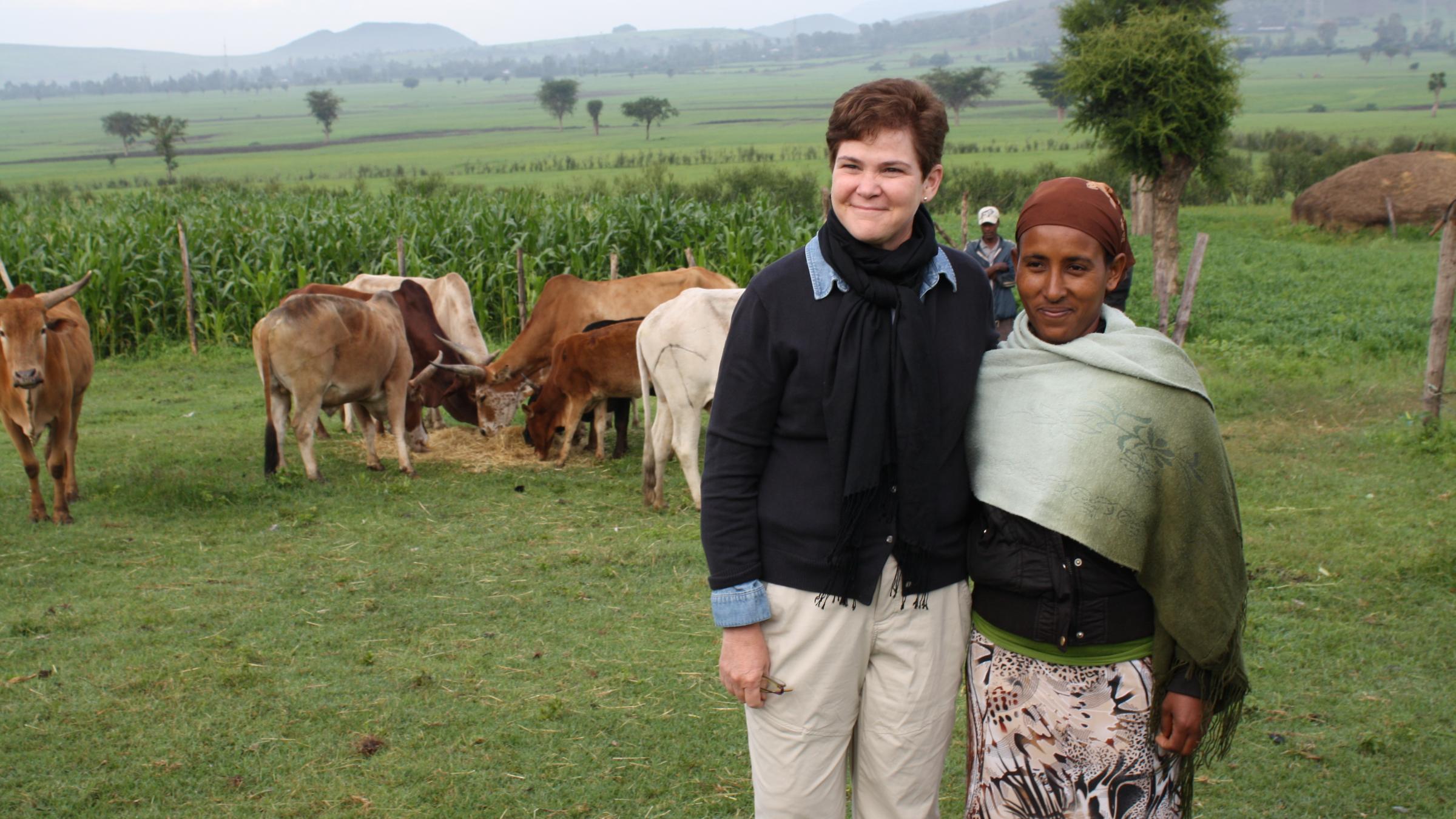Food for Progress Helps Female Farmer Forge Path to Success in Ethiopia

By Michael Francom, Agricultural Counselor, U.S. Embassy, Addis Ababa
On her recent trip to Africa, Deputy Agriculture Secretary Krysta Harden was able to spend time in Ethiopia witnessing how USDA’s work there is helping the country’s agricultural sector to grow and thrive.
On August 28, the Deputy Secretary visited a small-scale, woman-owned dairy farm to see how the Feed Enhancement for Ethiopian Development (FEED) Project, an activity supported by USDA’s Food for Progress Program, has boosted milk production through better feeding practices and farm management.
The Food for Progress Program, administered by USDA’s Foreign Agricultural Service, helps developing countries modernize and strengthen their agricultural sectors. USDA has partnered with ACDI/VOCA to carry out the FEED project in Ethiopia.
Harden met with the farm owner, Ms. Yetemwork Tilahun, at her operation near the town of Mojo, about 50 miles south of Addis Ababa. There, she saw firsthand the positive impact the FEED project has had in improving milk production and generating an alternative revenue stream for this hardworking family. The Deputy Secretary commended Ms. Yetemwork for her determination and success and complimented her efforts to maintain such healthy and productive animals.
Ms. Yetemwork expressed her appreciation to the Deputy Secretary for USDA’s support through the FEED project, which has allowed her to expand her operation from a single dairy cow to her current herd of 10 crossbred Holsteins, each valued at about $3,000 (USD). As a result of this expansion, Ms. Yetemwork is not only able to provide her family with fresh milk, but is also able to generate extra income by selling surplus production to several restaurants and hotels, as well as the nearby cooperative.
This growth has also lifted the neighboring community, as Ms. Yetemwork now employs seven outside hands to help with the increased workload. Ms. Yetemwork’s 11-year-old son also helps out around the farm and she hopes that he will become a large-scale farmer when he grows up. Her husband handles the milk sales and is also responsible for purchasing the feed ingredients from the local cooperative.
Deputy Secretary Harden learned about how the farm is largely self-sustaining, growing its own forage for its dairy and beef animals with the help of the FEED program. And, Ms. Yetemwork has developed a biogas unit where she composts the livestock waste from her farm to power her home. Harden was delighted to learn that the FEED program has also positioned Ms. Yetemwork’s farm as the model that other local dairy owners are seeking to emulate.
And last, but not least, Harden saw teff – Ethiopia’s staple grain – being grown on the farm. Ms. Yetemwork uses the teff to make injera (traditional Ethiopian bread), for her family and sells the surplus grain in the local market.
